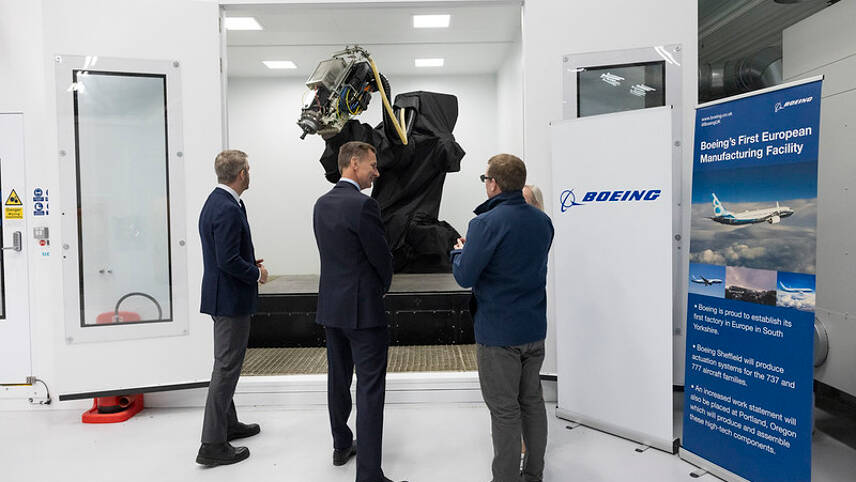Register for free and continue reading
Join our growing army of changemakers and get unlimited access to our premium content

Image: HM Treasury CC BY-NC-ND 2.0. https://www.flickr.com/photos/hmtreasury/53044984030/
Announced today (14 July), the selection means that the region will prepare to attract more than £1.2bn of private investment by 2030, helped by specific interventions from Westminster.
An ambition for the UK to host 12 ‘Investment Zones’ was announced at the Budget this Spring. Such zones offer an opportunity for partnerships between local universities and local businesses, which, with support from the Government, could deliver the innovations and the highly-skilled jobs of the future.
Chancellor Jeremy Hunt has stated that cleantech is one of his priority growth industries, along with digital technologies and next-gen healthcare. He has also emphasised the importance of improving energy efficiency at British firms.
The initial business participants in South Yorkshire’s Investment Zone are Boeing, plus aerospace firm Spirit Aerosystems and automation experts Loop Technology. Their academic partner is the Advanced Manufacturing Research Centre (AMRC) at the University of Sheffield.
Boeing was notably a co-founder of the AMRC 22 years ago. It has had a presence in the region ever since. Boeing achieved net-zero operations in 2020 and has pledged to support the aviation sector’s transition to net-zero by 2050. A recent intervention was the launch of a new digital tool assessing options for reducing emissions from aircraft fuel, such as efficiency improvements and alternative fuel procurement.
Collectively, these organisations have made an initial investment exceeding £80m. They will benefit from Treasury interventions including targeted tax relied to attract further backing. The full £1.2bn would enable the creation of 8,000 new jobs this decade.
Hunt said the initial Investment Zone “is a shining example of how we will drive growth across the country” and a major contribution to the Government’s levelling up agenda.
A further seven locations in England have been identified as suitable places for Investment Zones – the East Midlands; Greater Manchester; the Liverpool City Region; the North East; Tees Valley, West Yorkshire and the West Midlands.
There will additionally be two Investment Zones in Scotland, and Westminster is working with Governments in Wales and Northern Ireland to identify further suitable locations.
Related article: Pension reforms to unlock £50bn for ‘high-growth’ businesses, but lack green focus
Support for six new energy research schemes
The news from South Yorkshire came shortly after UK Research and Innovation (UKRI) and Economic and Social Research Council jointly awarded £53m of funding to support six energy research projects across the country.
£20m of this funding is going to two projects researching and developing hydrogen solutions. One is based at the University of Bath and the other at Newcastle University. Bath-based teams will assess the safety-related and economic aspects of hydrogen adoption and Newcastle’s specialists will develop a roadmap for hydrogen deployment in different sectors, assessing value-for-money and climate benefits.
A further £17.5m will be divided between three research hubs specialising in energy distribution, flexibility and storage. These so-called ‘Supergen’ hubs are at the University of Bristol, the University of Portsmouth and Aston University, in Birmingham. Plymouth’s specialty is offshore and coastal renewable energy while Aston’s is bioenergy. Bristol is looking at energy infrastructure modernisation and digitisation for flexibility.
The final £15m is being allocated to a new Energy Demand Research Centre, co-hosted by the University of Sussex and the University of Newcastle. Teams in these centres will assess what encourages individuals and businesses to use less energy – whether in buildings, industrial processes or transport.
Mari Martiskainen, Professor of Energy and Society at the University of Sussex Business School, said: “Many people and businesses across the UK, including in the Brighton area, have struggled with their energy costs in the last year, so it is vital that we improve the energy efficiency of our buildings to make them more resilient to both extreme weather and future price shocks.”


Also note, Hybrid Air Vehicles is building a new factory to build their novel, super efficient air transport, the Airlander 10 on Doncaster air field.